Have you watched the “Men Against Fire” episode in “Black Mirror”, the British anthology television series set in near-future dystopias with sci-fi technology? If you haven’t, check it out and come back to this piece.
That episode tells the story of men in uniform who hunt “roaches” (pale, snarling, humanoid monsters), believing that they are saving their community from an evil threat.
Later it was revealed that these men had a type of implant which altered their senses to show people of other ethnic groups as inhuman "roaches" – all done so that the soldiers could kill without hesitation and commit genocide without remorse.
I’m bringing this up because of what’s happening in Sabah. On June 4, more than 200 houses belonging to the Bajau Laut community in seven islands were demolished and burned, resulting in 2,000 villagers losing shelter.
Less than a week later, 40 homes belonging to the seafaring community in Kampung Kalansanan were burned in a fire that caused 300 people to lose their homes.
Local activists are running the hashtag #PandangKeSabah as a plea for attention.
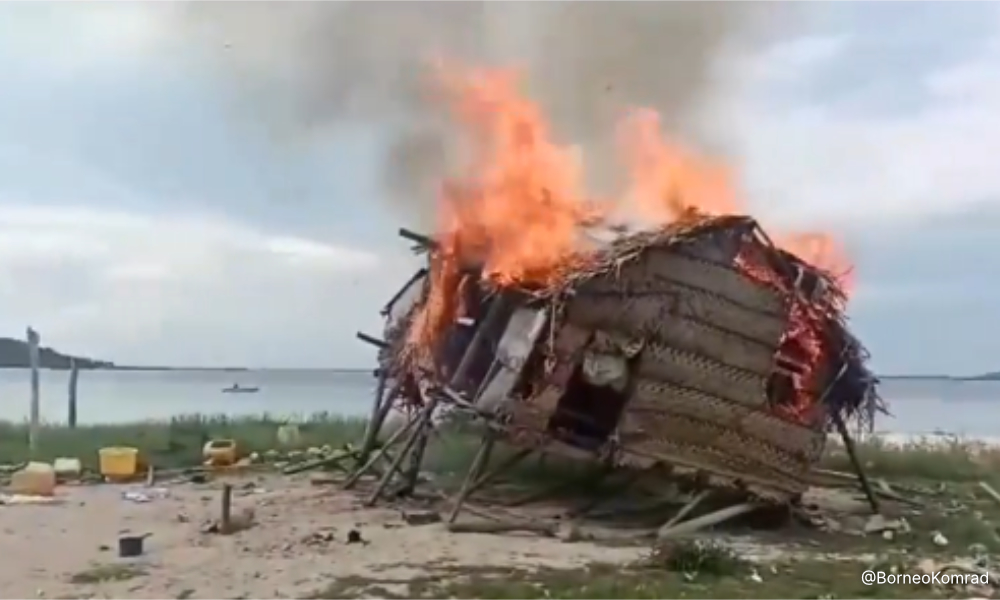
Worse still, a teacher named Shafeeq Rondi and his eight students from that community at Sekolah Alternatif have been arrested at a protest outside the Sabah Chief Minister’s Office. Intimidation as usual, even under the Madani government.
For context, the Bajau Laut is a community of mostly stateless sea nomads who live offshore in wooden houseboats or huts built on stilts.
They are traditional seafaring people who have roamed the seas of northeastern Borneo and the southern Philippines for centuries, and often live in fear of being deported or detained by immigration authorities, who do not make a distinction between stateless residents and undocumented migrants.
They are skilled fisherfolk and sailors, with a deep connection to the ocean and a traditional way of life, which is also exploited by the state and tourists.
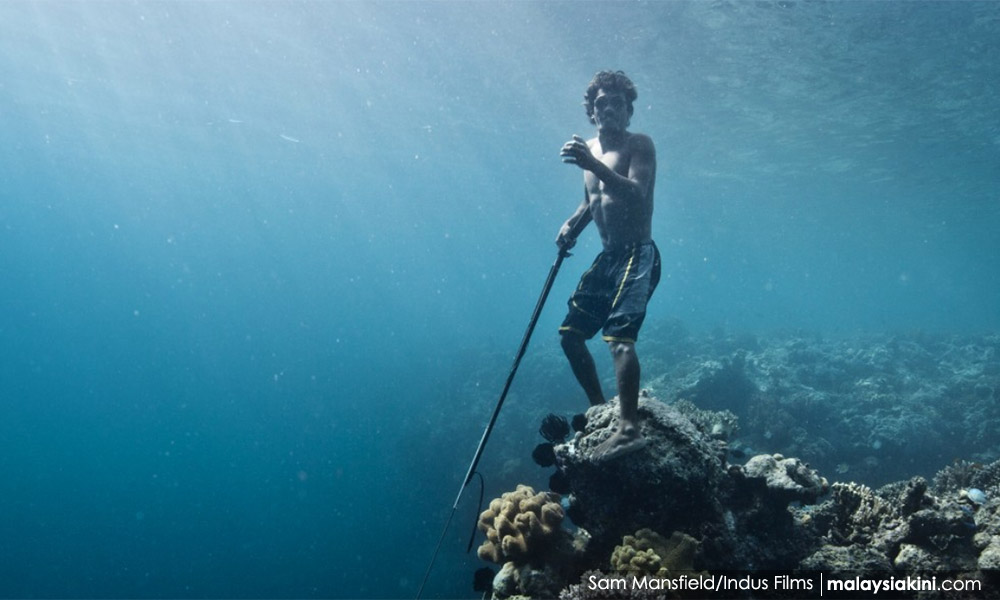
In the aftermath, the mainstream press ran headlines carrying words such as “rumah terbakar” (houses accidentally caught on fire) and “kampung haram” (illegal village).
These problematic frames have been rebuked by villagers and activists who rejected the term “terbakar” which implies it was an accident.
They claimed that electricity was shut off, so how could a fire occur coincidentally and conveniently, when authorities were there to demolish their homes?
It was a tough video to watch as people shrieked as they witnessed their homes engulfed in flames, yet some appeared to resign to the fact that they don’t have any power - legally and politically - to challenge the injustice.
Words matter
The term “haram” is also a problematic framing which renders the victims of this situation almost as if they are at fault for their own mishaps.
It also changes their readers’ emotions from a sense of injustice (how could they set fire to someone’s home?!) to “Oh, illegals.”
I happened to be in Kota Kinabalu that week and saw Oppenheimer-like black smoke arising like mushroom clouds.
A friend and I thought it was a factory catching fire, but later discovered it was a village - Kampung Kalansanan. I thought about the child who pestered me to buy snacks for RM5 at the Filipino market: she looked different than the locals, did she lose her home?
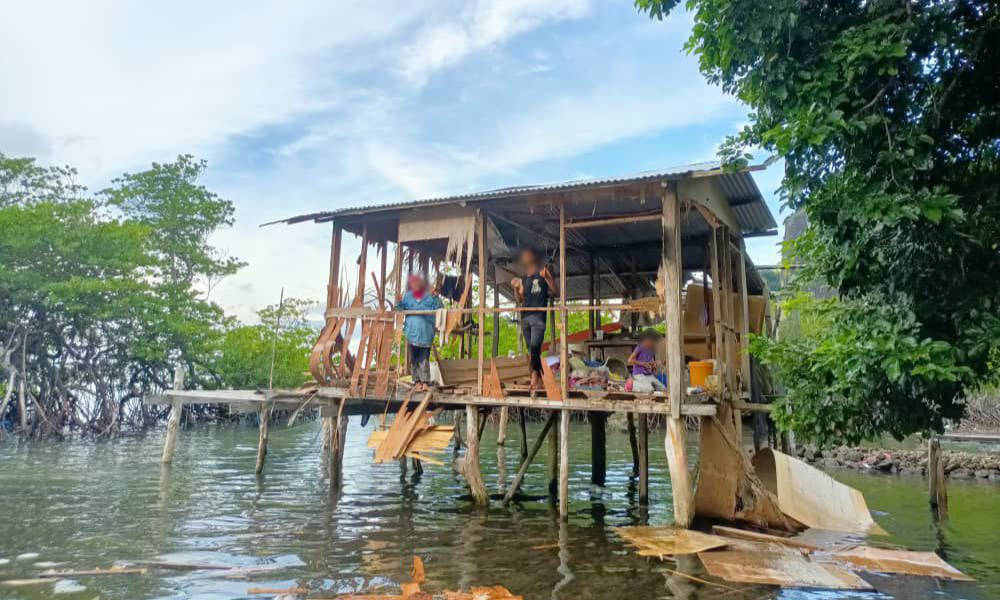
Afterwards, the thought that the village might be deliberately set on fire, that some men in uniform embodying authority and power could believe it is their righteous duty to burn someone’s home just like that, reminded me of “Men Against Fire.”
Except that this is real life, happening now instead of a distant dystopian future. And that an ideology suffices to make people act inhumanely towards others instead of some high-tech implant in their brains.
The toxic comments hurled at these people are not unfamiliar to those of us long associated with immigration - lack of assimilation, questionable loyalty, and penchant for crimes, etc.
Fishing out ‘pendatangs’?
The other day I was watching a Facebook video about an operation to catch foreign fish species - the “ikan bandaraya” or the suckermouth catfish - that was harming the local fish population in Sungai Langat.
This seemingly innocent video with a million views was flooded with xenophobic comments, which received many “likes”, such as “Warga asing pun patut jala tiap minggu! Nanti dia orang jadi tuan!” (Foreigners should also be netted each week! Otherwise, they’ll take over!)
A shiver went down my spine as I read those comments, which took me back to university when we were reading about the Rwanda genocide in which the Hutus described their rival Tutsis as cockroaches to be hunted and eliminated.
Exaggerating? We would like to think our peace-loving citizens are incapable of violence until it happens.
Some Malaysians believed that the Sino-Malay conflict would not escalate to violence, until May 13 happened.
Some Malaysians believed KK Mart was all political bravado (talk cock only) until Molotov cocktails were thrown at KK Mart outlets.
Some Malaysians believe religious radicalisation is not a serious concern as no one has been killed a la suicide bombing yet.
Some Malaysians believe we are kind people who would not turn away a sinking boat carrying human beings, or burn down houses belonging to other people.
Fueled by fear
Back to the foreign fish analogy, maybe that is how some of us view stateless people and undocumented migrants, legal or otherwise.
Some activists believe it is not proper to associate stateless issues with migrant issues, which makes sense as a strategic choice to influence public opinion and policy buy-in from authorities.
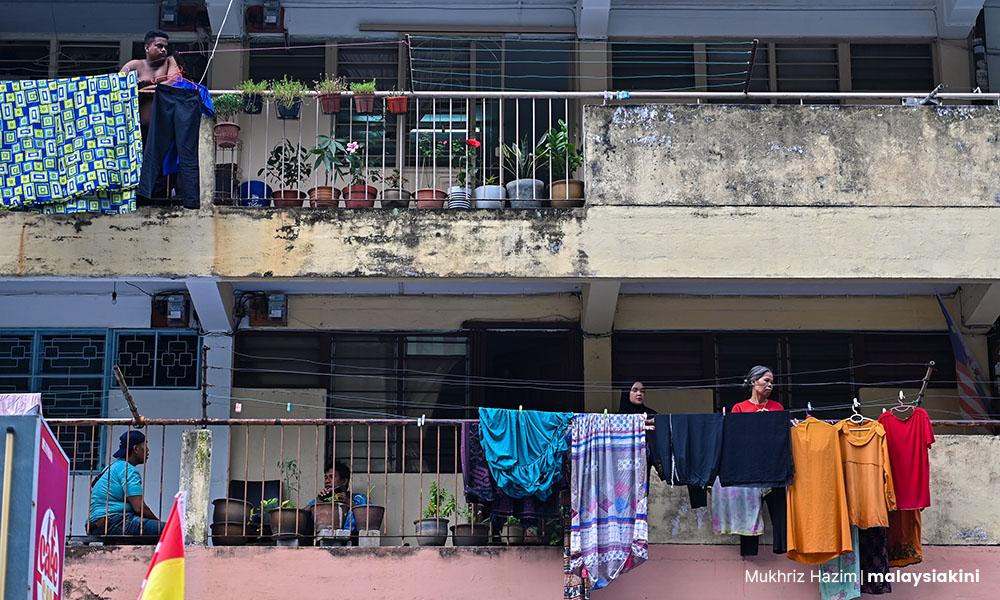
That said, I believe our fear - yes, these reactions are driven by fear, specifically, an irrational fear of displacement (look up the Great Displacement Theory) - of stateless and migrant people boils down to the same root: our discomfort with our own history.
Immigration DNA
Malaysia is a nation that has two birthdays and couldn’t agree on how old we are.
For all the tourist ads of “Malaysia Truly Asia”, we never comfortably settled our relationship with immigration. Some were repulsed at the fact that Malaysia is a result of immigration and regretted that we are a plural society (it is a colonial curse).
For others, Malaysia’s history includes migrant histories which are worthy of recognition and celebration. Not just lip service about the melting pot for tourism ads, but a real embrace of our identity as a migrant society.
If we collectively believe that Malaysia is a migrant society, then we should act like one. Treat other human beings with similar respect, dignity and compassion as you would a fellow citizen.
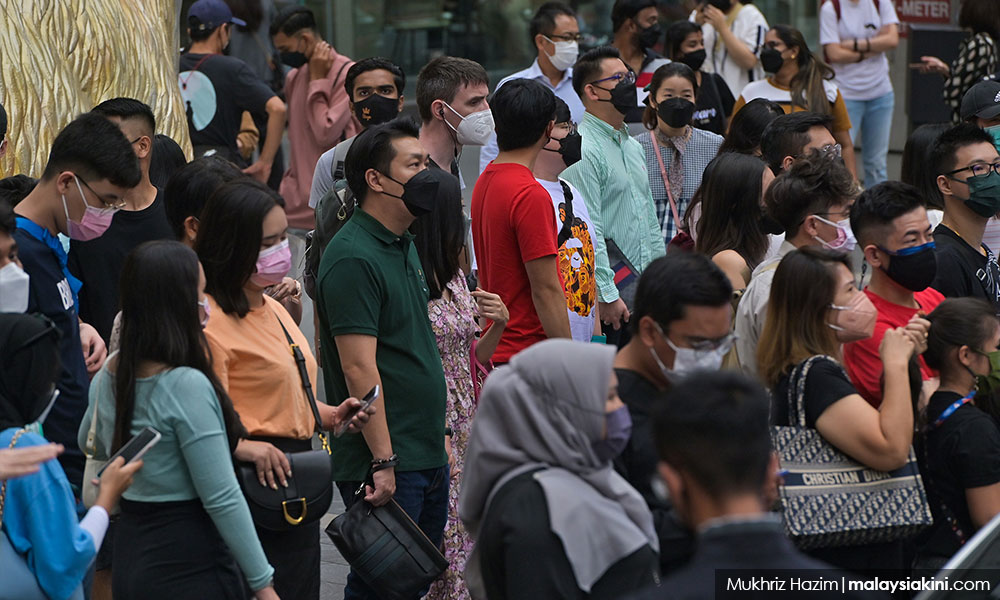
We must not limit our humanity to only apply to humans with paper documents. Immigration is not a dirty word – it is mainstream because it is part of us! Immigration is embedded in most Malaysians’ personal, family, and social histories - do we see ourselves as “corrupted” or are we proud of/embody our heritage?
Labels associated with immigration, for example, pendatang, are so often weaponised as an object to be rallied against, but if we look closer and deeper into our own history, we can make positive labels for immigration.
Some stateless people and migrants have resided in the country longer than those who condemn them, they too are/can be citizens, or at least residents, who make meaningful contributions to society.
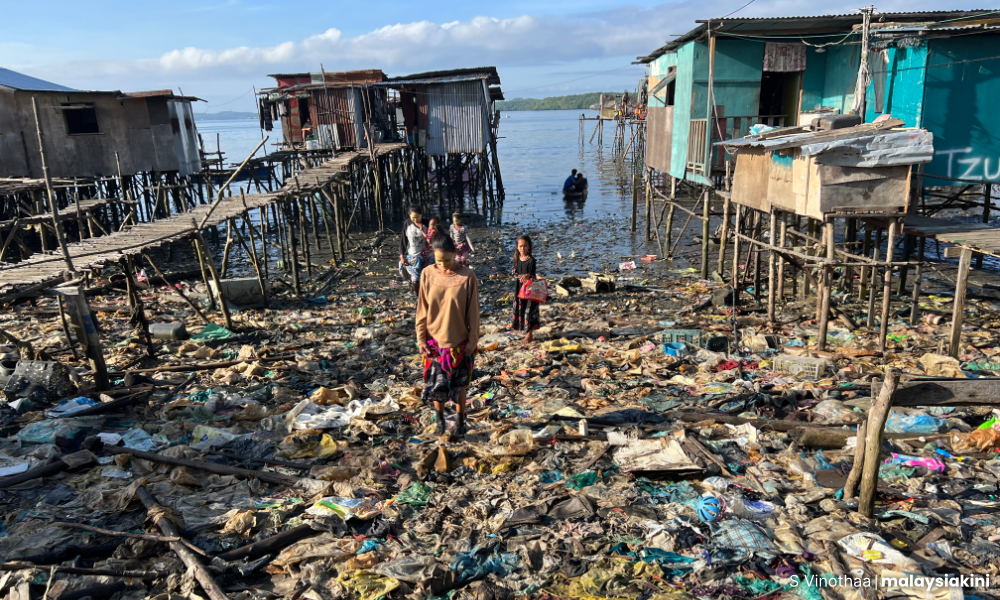
Can we collectively say Malaysia is better off with migrants, or will we behave the same as those who are repulsed at the fact that Malaysia has become a nation “corrupted” by migrants or the pendatang’s presence?
If we continue to view The Other as pests to be eliminated, we are sliding down towards a society prone to violence and ethnic cleansing which is capable of genocidal intentions.
So much for some people’s fear of being displaced like native Americans, but their beliefs and behaviours are more like white supremacists. - Mkini
OOI KOK HIN is a political sociologist who dabbles in civil society.
The views expressed here are those of the author/contributor and do not necessarily represent the views of MMKtT.




No comments:
Post a Comment
Note: Only a member of this blog may post a comment.